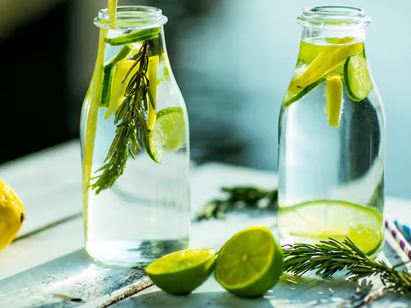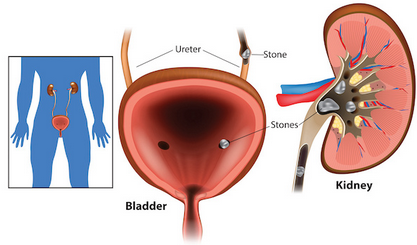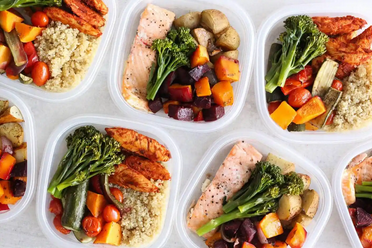In today’s health-conscious world, detox water has become a popular way to hydrate while supporting the body’s natural detoxification process. These simple yet effective drinks are made by infusing water with fruits, vegetables, and herbs, creating refreshing beverages that not only taste great but help cleanse your body of toxins. Whether you’re looking to boost your metabolism, improve digestion, or simply stay hydrated, detox water recipes offer a healthy, natural solution to help you achieve your wellness goals.
The Benefits of Detox Water
Why Detox Water Works
Detox water is more than just flavored water—it contains powerful ingredients that support the body’s natural detoxification processes. The primary benefits include:
- Hydration: Staying hydrated is essential for overall health, and detox water encourages people to drink more water throughout the day.
- Toxin Removal: Ingredients like lemon, cucumber, and mint can help flush toxins from your system by promoting kidney and liver health.
- Digestive Support: Many detox water recipes feature ingredients known for aiding digestion, such as ginger, lemon, and apple cider vinegar.
- Boosted Metabolism: Some detox waters include ingredients like grapefruit or green tea, which may help boost metabolism and promote fat burning.
Incorporating detox water into your daily routine can be a simple yet effective way to improve overall health and well-being.
How to Make Detox Water
Making detox water is incredibly simple and customizable. All you need is a base (typically water), some fresh ingredients, and a little time to let the flavors meld. Here are a few common ingredients used in detox water recipes:
- Citrus Fruits: Lemons, limes, and oranges are rich in vitamin C, which can help cleanse the liver and support immune function.
- Cucumber: Known for its hydrating properties, cucumber helps to soothe and cool the body while supporting digestion.
- Mint: A refreshing herb that aids digestion, mint can also help calm the stomach.
- Berries: Blueberries, strawberries, and raspberries are rich in antioxidants, helping to fight inflammation and protect against free radicals.
The beauty of detox water lies in its versatility—you can mix and match ingredients to create a flavor profile that suits your taste while reaping the health benefits.
Detox Water Recipes You Can Try
1. Lemon, Cucumber, and Mint Detox Water
This classic combination is one of the most popular detox water recipes because it’s incredibly refreshing and provides numerous health benefits.
Ingredients:
- 1 lemon (sliced)
- 1 cucumber (sliced)
- A handful of fresh mint leaves
- 4 cups of water
Instructions:
- Add the lemon, cucumber, and mint to a large jug or pitcher.
- Fill with water and stir gently to mix.
- Let it sit in the fridge for at least 2-3 hours to allow the flavors to infuse.
This detox water is great for hydration and digestion, and the mint provides a calming effect.
2. Apple Cider Vinegar and Lemon Detox Water
Apple cider vinegar is known for its ability to balance pH levels, improve digestion, and detoxify the liver. Pairing it with lemon enhances the drink’s detoxifying properties.
Ingredients:
- 1 tablespoon apple cider vinegar
- 1 lemon (sliced)
- 1 tablespoon honey (optional)
- 4 cups of water
Instructions:
- Add the apple cider vinegar, lemon slices, and honey (if desired) to the water.
- Stir well to combine.
- Let it sit in the fridge for 1-2 hours for the flavors to blend.
This drink is ideal for those looking to improve digestion and promote detoxification.
3. Strawberry, Basil, and Lime Detox Water
This combination of sweet strawberries and fresh basil is perfect for a flavorful and aromatic detox water.
Ingredients:
- 5-6 strawberries (sliced)
- A handful of fresh basil leaves
- 1 lime (sliced)
- 4 cups of water
Instructions:
- Add the strawberries, basil, and lime slices to a jug of water.
- Stir the ingredients and let the mixture sit in the fridge for at least 2 hours.
Strawberries are rich in antioxidants, and basil provides anti-inflammatory benefits, making this detox water a great choice for overall health.
Subheading: Tips for Enhancing Your Detox Water
To get the most out of your detox water, consider these helpful tips:
- Drink Freshly Made Water: For the best flavor and benefits, consume detox water within 24-48 hours.
- Use Organic Ingredients: Whenever possible, use organic fruits, vegetables, and herbs to avoid exposure to pesticides and chemicals.
- Experiment with Flavors: Don’t be afraid to try new combinations. Add herbs like rosemary or spices like ginger for an added boost.
- Stay Consistent: For best results, drink detox water daily, especially in the morning, to jumpstart your metabolism and promote hydration.
Conclusion
Incorporating detox water recipes into your daily routine is a simple, natural way to support your body’s detoxification process while staying hydrated. Whether you’re looking to improve digestion, boost metabolism, or just enjoy a refreshing beverage, detox water offers a host of benefits. By experimenting with different combinations of fruits, herbs, and spices, you can easily create a drink that suits your taste and helps you maintain a healthy lifestyle. So, why not start today and enjoy the benefits of a more vibrant, energized body?

 Kidney stones are a common and painful condition that affects millions of people worldwide. These hard mineral deposits form in the kidneys and can lead to severe discomfort when they move through the urinary tract. Understanding how to prevent kidney stones is crucial for maintaining optimal kidney health and avoiding complications. By adopting healthy habits and making informed choices, you can significantly reduce your risk of developing kidney stones.
Kidney stones are a common and painful condition that affects millions of people worldwide. These hard mineral deposits form in the kidneys and can lead to severe discomfort when they move through the urinary tract. Understanding how to prevent kidney stones is crucial for maintaining optimal kidney health and avoiding complications. By adopting healthy habits and making informed choices, you can significantly reduce your risk of developing kidney stones.